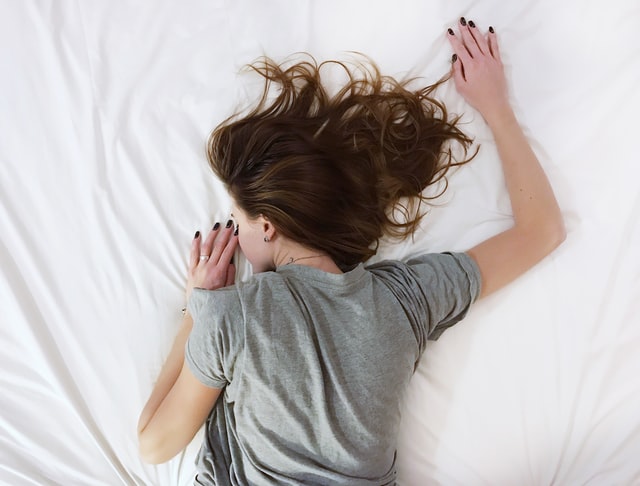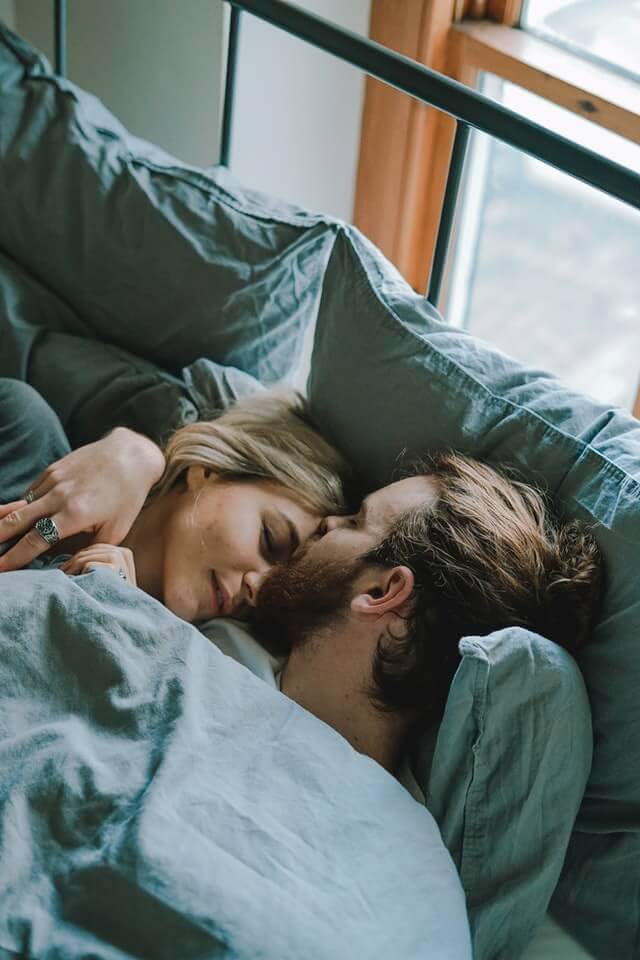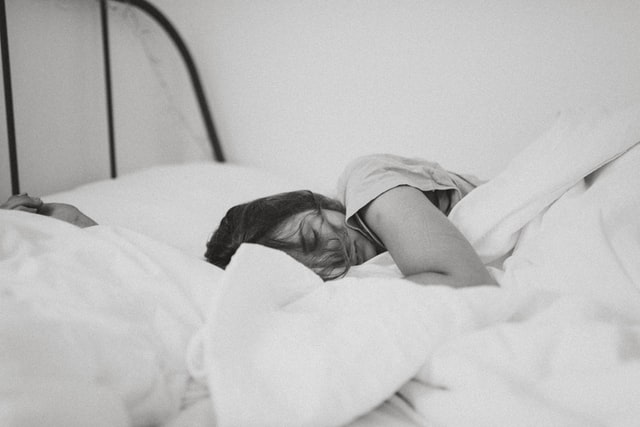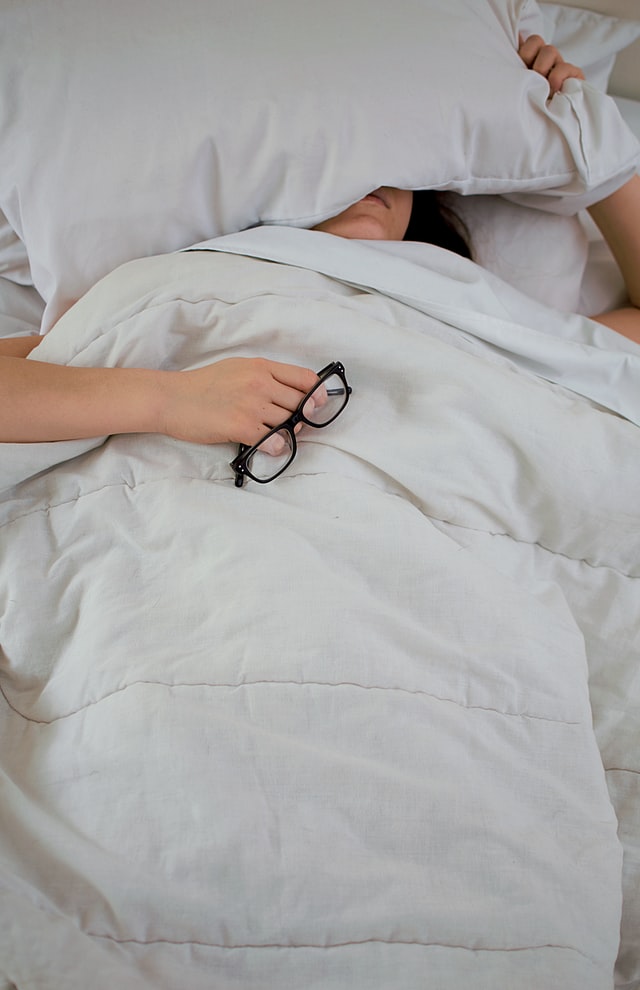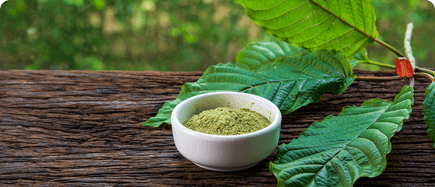Sleep might be the most underrated natural remedy in existence. According to the Center for Disease Control and Prevention (CDC), a third of adults don’t receive adequate sleep. Everyone is different, but research has characterized adequate sleep for adults as seven to eight hours of uninterrupted sleep a night. This prevalent sleep deficiency is problematic for more reasons than one. Mainly, lack of sleep can lead to heart health issues, stress, and ultimately, a shorter life expectancy. There are plenty of reasons to focus on optimizing your sleep. Among these reasons, achieving optimal health is key. It’s important to understand how to sleep better at night naturally, rather than relying on medication. Read on to learn about natural ways to get better sleep.
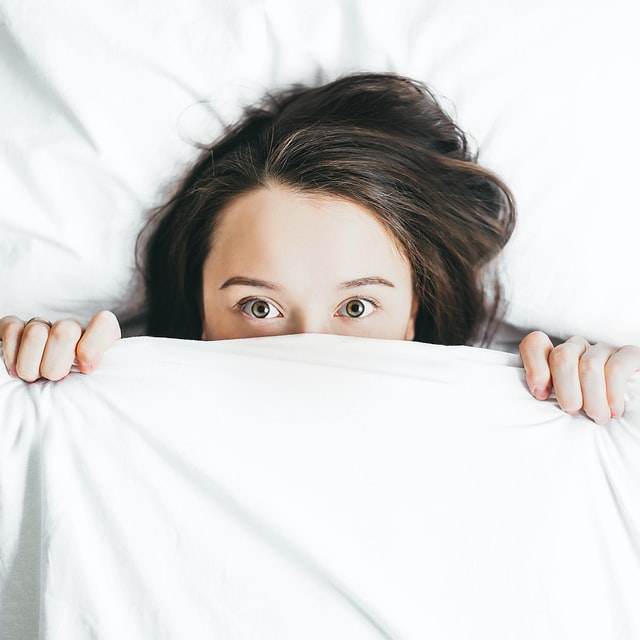
Get A Sleep Routine: Honor your circadian rhythm! In brief, your circadian rhythm is a process that regulates your sleeping and waking schedule every 24-hour period. If you’re trying to understand how to sleep better at night naturally, try going to sleep at the same time each night and waking up at roughly the same time every morning.
This doesn’t need to be a perfect science. Your body can do most of the work here. Your job is to get into good sleeping patterns and develop a sleep schedule that allows you to get the seven to eight hours of required sleep each night at approximately the same time.
An out of whack circadian rhythm translates to poor decision-making, weight gain, and a generally bad ‘next day’.
Work Out: Behold, the power of a good sweat! We often underestimate exercise among ways to get better sleep. Get into a daily workout habit and watch as your ability to fall asleep more quickly — and sleep more soundly — transforms your life. Daily exercise helps with stress release, curbs worrying, and boosts your mood, plus it releases feel-good endorphins. Keep in mind, it’s not a good idea to exercise right before you’re trying to fall asleep, the stimulation to your nervous system could interrupt your sleep.
Quit Drinking & Smoking: There’s no getting around it… Drinking alcohol messes with your sleep. If you’re hunting for ways to get better sleep but don’t want to eliminate drinking, you’ll be hard-pressed to get far in this endeavor. Many people feel like a few glasses of alcohol help them get to sleep faster at night. The problem is the subpar quality of sleep you’re getting when you drink. Try not drinking for a month and see how your sleep improves. Record your findings in a journal and celebrate sobriety in the name of health and wellness.
Quitting smoking is another great way to improve your sleep and general health. Although smokers often report a feeling of relaxation when smoking, citing stress as a reason not to quit, nicotine is a stimulant and will not promote restful sleep.
Improve Your Diet: It’s easier said than done, but eliminating processed foods and sugar from your diet will improve your sleep quality exponentially. If you’re looking to sleep better naturally at night, consider a holistic approach. Prioritize cooking at home so you have control of your nutrition. Build a base with healthy grains, such as brown rice or quinoa, and add in a medley of vegetables. Do your own research about where your food comes from — it matters! Everyone is different and what works for you might not work for someone else. Play around with different healthy food options until you find what you love and what helps you get a wonderful night’s sleep.
Ditch Screens Before Bed: It’s widely reported that blue light isn’t good for us. Almost all of us are guilty of sleeping next to our smartphone, or falling asleep to a show playing on our TV or laptop. Blue lights emitted from these screens can trick our minds into thinking it’s daytime, thus making it difficult for us to get in the sleepy mindset. If you’re hunting for ways to get better sleep, try trading out your television or smartphone with a few chapters in a great book for a few nights and see how avoiding screens could help you get more restful sleep.
Make Your Sleep Environment Cozy: Deck out your bedroom with blackout curtains and the most luxuriously comfortable mattress, softest bed sheets, and fluffiest pillows. Make sure you use your bed only for sleeping so you don’t associate it with working, eating, or lounging.
CBD Oil: Experiment with high-quality CBD oil. Many people use this natural remedy when they have difficulty sleeping. When shopping for your CBD, make sure you’re buying from a company you trust. You’re going to want to find sustainably-sourced, organic CBD. Put a few droplets into chamomile tea when you’re getting ready for bed and prepare for ultimate relaxation mode.
Avoid Excessive Napping in the Daytime: Studies that have been conducted to find ways to get better sleep have shown that daytime naps of no more than thirty minutes can improve brain function and overall health. Going overboard on napping, however, has the reverse effect. Taking naps longer than thirty minutes in the daytime can interfere with your ability to get to sleep at night and this can have negative impacts on your health. The less you sleep at night, the more you’ll be inclined to nap throughout the day, trapping you in a vicious cycle.
Engage in Relaxing Activities Before Bed: Meditating or taking a relaxing shower or bath can get your body and mind in the right place to prepare for a satisfactory night sleep. Treat yourself to these forms of self-care and take advantage of these delicious ways to get better sleep. You deserve to pamper yourself morning, day, and night. Prioritizing your mental health is key to brilliant sleep.
There seems to be a trend of people showcasing lack of sleep as something to be proud of. As a culture, we can do better than rewarding this unhealthy behavior of sleep deprivation and start spreading helpful information to promote ways to get better sleep and improve our overall wellness.
The statements made regarding these products have not been evaluated by the Food and Drug Administration. The efficacy of these products has not been confirmed by FDA-approved research. These products are not intended to diagnose, treat, cure or prevent any disease. All information presented here is not meant as a substitute for or alternative to information from health care practitioners. Please consult your health care professional about potential interactions or other possible complications before using any product.
Want to learn more about kratom quality and value? Start here:
Why Buying Cheap Kratom Can Be Dangerous
